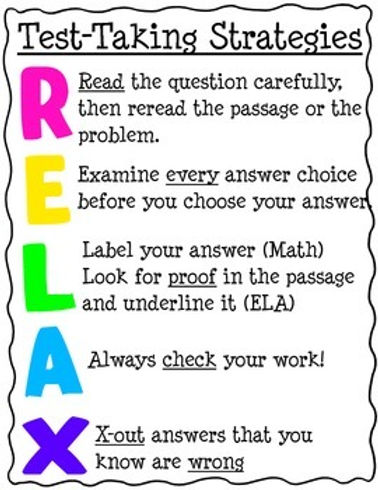Exam season is upon us, and the stress and anxiety are starting to creep in. As someone who has gone through countless exams and has had my fair share of late-night study sessions and nerve-wracking test-taking moments, I understand just how overwhelming it can all be. But fear not! In this blog post, I want to share some tried and tested strategies that will help you approach exams with a sense of calm and confidence.
First and foremost, it’s essential to have a well-organized study plan. Start by breaking down your material into manageable chunks. Cramming all the information in one night before the exam is not only ineffective but also incredibly stressful. Instead, create a study schedule that allows you to review a little bit of the material each day leading up to the exam. Consistency is key, as studying in smaller increments over a more extended period helps with retention.
Now that you have a study plan in place, it’s time to tackle the actual studying. Find a quiet and comfortable space where you can focus without distractions. This might mean turning off your phone or finding a secluded spot in the library. Experiment with different study techniques to find what works best for you. Some people find it helpful to rewrite their notes for reinforcement, while others benefit from visual aids or flashcards. The important thing is to find the method that helps you understand and retain the information most effectively.
Apart from reviewing the material, it’s crucial to practice with past exams or sample questions. Getting familiar with the format of the exam and the types of questions that might be asked can greatly reduce anxiety during the actual test. Practice exams also give you the opportunity to identify any areas where you may need further clarification or review. Remember, practice makes perfect!
However, mere knowledge of the material isn’t always enough to excel in exams. Developing effective test-taking strategies is equally important. One such strategy is to read the instructions carefully before you start answering any questions. Understand what is expected of you, whether it’s multiple-choice, short-answer, or essay questions. Pay attention to any specific guidelines or word limits provided. Taking a few extra moments at the beginning to familiarize yourself with the instructions can help you avoid unnecessary mistakes later on.
When it comes to multiple-choice questions, employ the process of elimination. Read each question thoroughly, and then eliminate any obviously wrong answers. This narrows down your choices and increases your chances of selecting the correct option. Remember to pick the best possible answer, rather than just settling for the first one that seems reasonable. Sometimes, the right choice might be disguised by cleverly-worded distractors.
As for short-answer or essay questions, take a moment to plan your response before diving in. Jot down any key points or ideas you wish to include. This not only helps you structure your answer but also ensures you cover all the necessary points. Be mindful of your time management, allocating enough of it to each question according to its weightage. And always provide examples or evidence to support your arguments – this demonstrates a deeper understanding of the topic.
It’s crucial to stay calm and focused throughout the entire exam. Deep breathing exercises can help alleviate anxiety and increase mental clarity. If you find yourself getting stuck on a question, don’t panic. Move on and come back to it later. Sometimes, answering subsequent questions can jog your memory or provide insights that help you solve previously difficult ones.
Lastly, don’t forget to take care of yourself. Allow yourself breaks during study sessions and on the day of the exam. Get plenty of sleep the night before, and have a nutritious meal beforehand. Taking care of your physical and mental well-being directly affects your performance. Remember, you are not a machine, and sometimes, a short break or a good night’s sleep can do wonders for your focus and productivity.
In conclusion, while exams can be stressful, adopting a smart and strategic approach can greatly improve your test-taking experience. A well-organized study plan, effective study techniques, and practice exams are crucial to building a strong foundation of knowledge. Equally important are test-taking strategies such as reading instructions carefully, using the process of elimination, and planning your responses. And never underestimate the power of self-care. By implementing these strategies, you can face your exams with confidence and reduce stress levels, ultimately leading to better results. Good luck!
